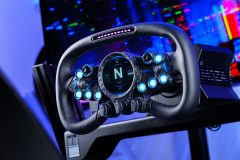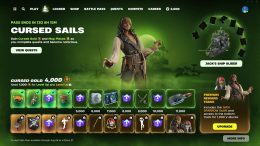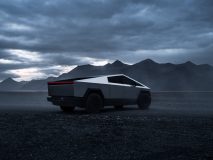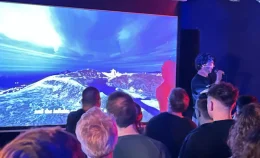Autonomous spacecraft rely significantly on cutting-edge navigation systems to complete missions. In the field of commercial extraterrestrial navigation, Advanced Navigation’s LiDAV technology is a major step forward. The LiDAV sensor, dubbed LUNA (Laser measuring Unit for Navigational Aid), was developed at the Australian National University over the course of a decade. It provides accurate data on velocity and altitude in three dimensions with respect to the lunar surface.
When light, dust, or other obstructions prevent cameras from functioning properly or when visual references are unavailable, LUNA can be used as a navigation input to guide the ship in the right direction. The accuracy and dependability of complex autonomous landing operations are improved by LUNA’s navigation data, leading to more successful missions and opening up the lunar surface for further research.
American space systems company Intuitive Machines has contracted Advanced Navigation to provide its space-ready LUNA sensor as part of NASA’s Commercial Lunar Payload Services (CLPS) program. The Nova-C lander, built by Intuitive Machines, will feature LUNA technology and show off its talents during the final fall to the lunar surface.
Working with Intuitive Machines benefits both Australia’s and NASA’s efforts to expand human presence in space. If LUNA technology is successfully demonstrated on the Nova-C lander, it can be commercially included onto landers beginning in 2025-26. With this addition, autonomous landing maneuvers will be more secure, and dependable navigation across the lunar surface will be possible.
The Australian Space Agency’s dedication to growing Australia’s space technology industry is seen in its unwavering backing of Advanced Navigation. The director of the Australian Space Agency, Enrico Palermo, has stressed the importance of space technologies in modernizing many facets of human existence. The agency’s mission is to assist Australian businesses like Advanced Navigation in expanding their footprint in the space industry, penetrating untapped markets, and exporting their cutting-edge technological innovations to the rest of the globe in order to accelerate economic development, create new jobs, and realize untapped business potential.
The LUNA technology developed by Advanced Navigation has uses outside the partnership with Intuitive Machines. Because of its small size and great performance, it may be easily included into Intuitive Machines’ Micro-Nova, a micro extreme mobility lunar vehicle also known as a “hopper.” With LUNA on board, the Micro-Nova can find its way through dark craters and lava tunnels without any human assistance or GPS.
Advanced Navigation is teaming up with Macquarie University’s Australian Astronomical Optics (AAO) to provide LUNA the best chance it has of surviving the harsh environment of space. The collaborative effort will design, produce, and qualify LUNA’s optical head assembly to withstand the harsh space environment.
Australian firm Transparent Earth Geophysics will conduct extensive flying test campaigns and investigate LUNA’s potential terrestrial applications. Airborne gravimetry and the precise navigation of airborne vehicles including planes, helicopters, commercial drones, and air taxis are two examples of these uses. Beyond its use in space travel, LUNA’s technology has the potential to revolutionize many different fields.
Advanced Navigation, which was built on a foundation of scientific inquiry, is a pioneer in the rise of autonomous technology. The company’s goal is to create a more sustainable and resilient future on Earth and beyond through the use of cutting-edge technologies that increase human potential. Advanced Navigation has the backing of the Australian Space Agency and works with leading technology companies to further scientific discovery and space exploration.
First reported on Tech Business News


















